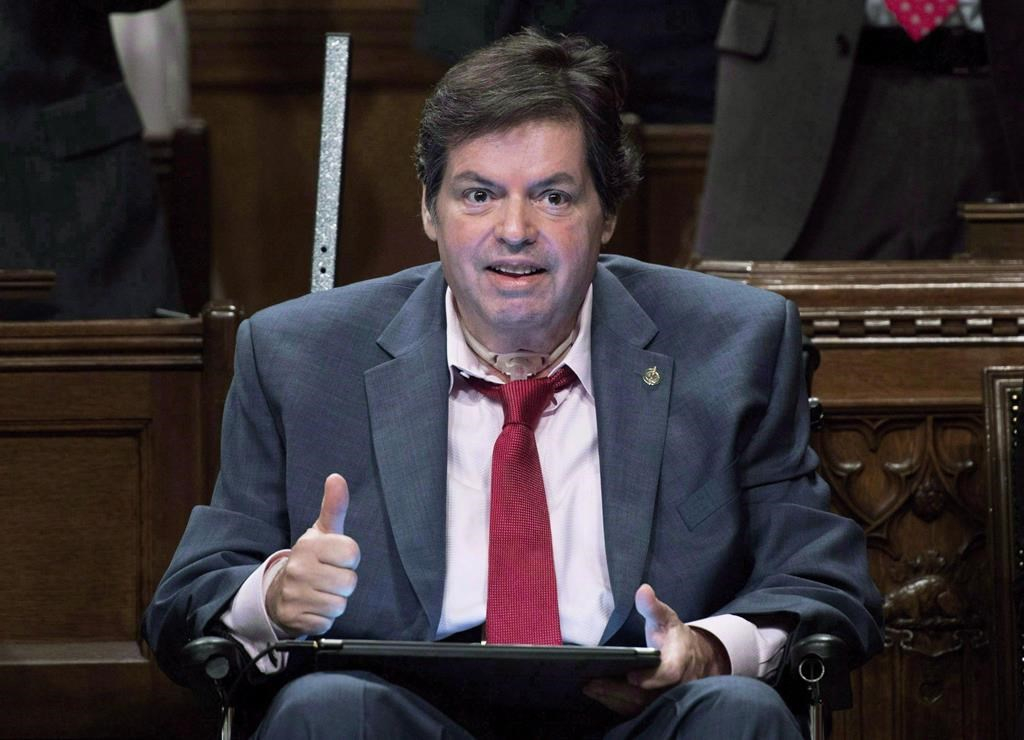Support strong Canadian climate journalism for 2025
Public education will be vital in making sure Canadians know about forthcoming changes to the lyrics of O Canada that are expected to become official in the coming days, says a longtime champion behind the reforms.
Liberal MP Mona Fortier says she would like to see the government invest in a public awareness campaign to promote the national anthem's new gender-neutral language.
The change is the culmination of a years-long effort by former MP Mauril Belanger, Fortier's predecessor in her Ottawa-Vanier riding, to change the anthem's second line from "in all thy sons command" to "in all of us command."
Belanger was diagnosed with ALS, also known as Lou Gehrig's disease, following the 2015 election. He died two months after the House of Commons passed the bill in June 2016, but the Senate took until last week to approve the new wording.
All that remains for the bill to become law is for the Governor General to give royal assent, a step Fortier believes will happen in the next few days.
Fortier says she intends to spread the word about the new lyrics and suggested distributing promotional material, such as flyers and bookmarks, to inform Canadians about the new language.
The words to O Canada have changed on several occasions, though not since 1980, when it became the official national anthem. There have been at least 10 attempts since then to amend the lyrics to make them more gender inclusive.
The anthem's music and French lyrics were written in 1880, with English following 28 years later.
Robert Stanley Weir, who wrote the English version, added "in all thy sons command" in place of the original "thou dost in us command" in 1913 in what is believed to have been a salute to men in the armed forces as the First World War approached.
Once the bill receives royal assent however, there will be no extra money set aside to inform Canadians about forthcoming changes to the lyrics.
The anthem’s new gender−neutral language will be introduced as part of the normal reprinting of government material, so there will be no additional costs, a spokesman for the Canadian Heritage department said Tuesday.
Online materials will be the first to change, and the government will inform "partners and stakeholders" so they can make their own revisions, said David Larose.
"Equality of all genders should be reflected in our national symbols, as we believe that a more inclusive Canada is a stronger Canada," he added.





Comments